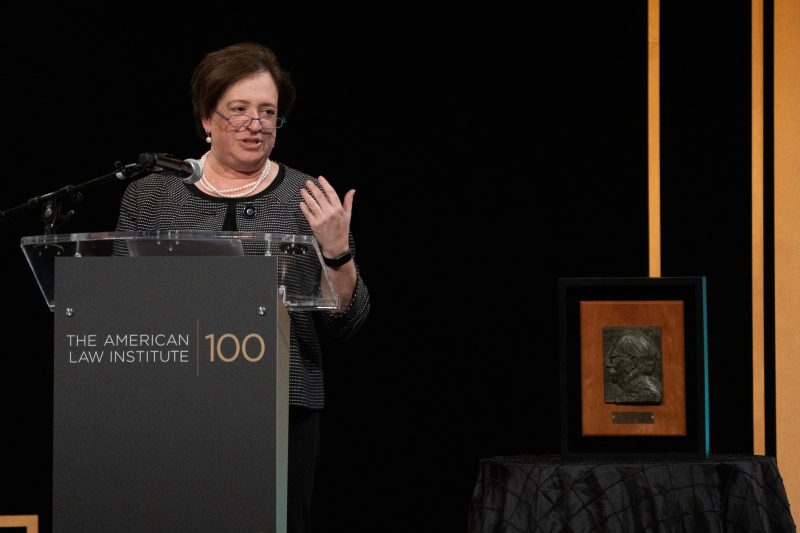Within the realm of the judicial system, ethics and accountability play a crucial role in maintaining the public’s trust and upholding the integrity of the courts. This sentiment was recently emphasized by Supreme Court Justice Elena Kagan, who called for a mechanism to enforce the Supreme Court’s ethics code. As a member of the highest court in the United States, Justice Kagan’s remarks carry significant weight and could potentially lead to important changes within the judiciary.
The Supreme Court’s code of conduct serves as a foundation for ethical behavior among its members, outlining guidelines for impartiality, integrity, and transparency. However, unlike lower federal courts, the Supreme Court has no formal mechanism in place to enforce these ethical standards. This lack of oversight has raised concerns about accountability and the potential for ethical breaches among the justices.
Justice Kagan’s call for a way to enforce the ethics code reflects a growing need for transparency and accountability within the Supreme Court. Given the immense influence and authority wielded by the justices, it is imperative that their actions are held to the highest ethical standards. By establishing a mechanism for enforcing the ethics code, the Supreme Court can demonstrate its commitment to upholding the rule of law and serving the interests of justice.
The issue of judicial ethics is not unique to the Supreme Court, as lower courts also face challenges in ensuring adherence to ethical standards. However, the highest court in the land sets a precedent for the entire judicial system, making it essential that it leads by example in promoting ethical conduct among its members.
In recent years, there have been calls for greater transparency and accountability within the judiciary, as concerns about judicial misconduct and conflicts of interest have come to the forefront. By addressing these issues and implementing mechanisms to enforce the ethics code, the Supreme Court can strengthen public confidence in the integrity of the judicial system.
Ultimately, Justice Kagan’s advocacy for enforcing the Supreme Court’s ethics code is a step in the right direction towards promoting a culture of accountability and transparency within the judiciary. As a revered member of the highest court in the United States, her words carry significant influence and could pave the way for important reforms that uphold the ethical standards expected of those entrusted with the administration of justice.




























